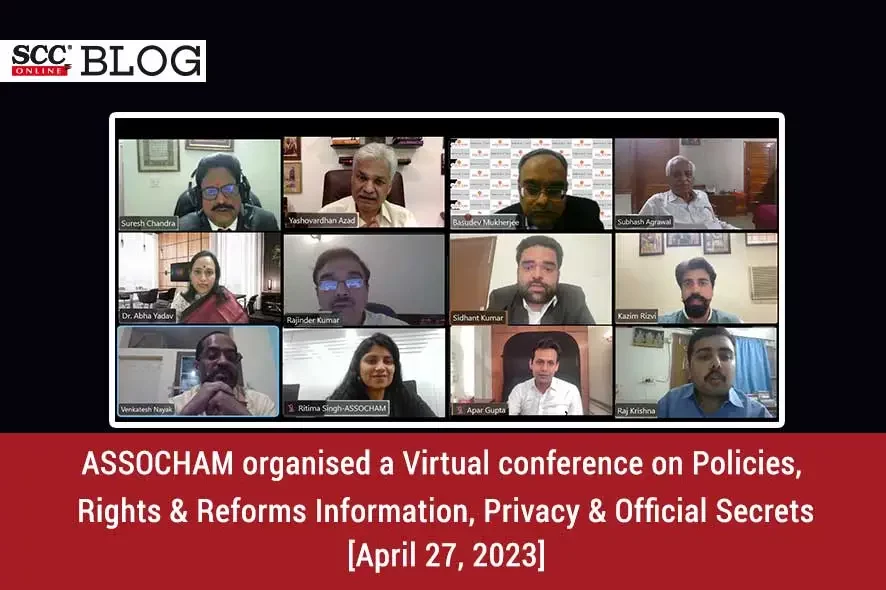“Efforts to establish a comprehensive legal framework for data protection, as well as robust oversight and accountability mechanisms for surveillance and other privacy-related issues, will be critical in promoting the right to privacy in India said Shri Suresh Chandra Information Commissioner, Central Information Commission, Govt. of India & Former Secretary, Ministry of Law and Justice, Govt. of India while speaking at the ASSOCHAM National Virtual Conference on Policies, Rights and Reforms Information, Privacy & Official Secrets.
“The RTI Act is a practical design and available to citizens with public authority. More power to Central and State Information Commissions for robust mechanism aligned with public interest” he further added. As India continues to grapple with issues of corruption and governance, the RTI Act will likely remain a critical tool for promoting transparency and accountability.
Talking about the digital freedom and helping a common man, Shri Yashovardhan Azad, IPS (Retd.) Former Special Director, Intelligence Bureau; Former Information Commissioner, Central Information Commission, Govt. of India said, “Policies and reforms like Data Protection and RTI Act aims to strike a balance between the need for public access to information and the need to protect sensitive information. Governments and other organizations often enact laws and regulations that limit the disclosure of certain types of information, such as national security or personal information”
At the same time, individuals and organizations have the right to access information that is of public interest. In recent years, there has been a growing focus on protecting individual privacy in the digital age, with many countries enacting data protection laws to safeguard personal information. Overall, policies, rights, and reforms related to information, privacy, and official secrets are crucial for maintaining a healthy democracy and protecting individual rights, he said.
Mr. Rajinder Kumar, Managing Partner, Kumar Law Associates, Corporate Advisors & Legal Consultants in his vote of thanks highlighted that provisions outline the specific details of how such policies and reforms should be applied in practice, while appeals mechanisms provide a way for individuals or organizations to challenge decisions made by authorities in relation to these policies. He added, data protection laws may include provisions that require organizations to obtain consent from individuals before collecting and using their personal data, and to implement appropriate security measures to protect this data.
The right to privacy is a fundamental human right recognized by international law and many national constitutions said Mr. Basudev Mukherjee Assistant Secretary General, ASSOCHAM in his opening remarks. For the sake of national security and global privacy, it is crucial to have a policy framework and solutions to complex issues with cyber frauds and security threats. As a result, there has been a growing focus on protecting the right to privacy, with many countries enacting data protection laws and other measures to safeguard personal information. Eminent Speakers at the conference included Shri S C Agarwal, RTI Activist; Venkatesh Nayak, Director CHRI, Apar Gupta, Co-founder and Director at the Internet Freedom Foundation (IFF); Dr Abha Yadav, Assistant Professor, NLU-Delhi, Adv. Sidhant Kumar, Kazim Rizvi, Director, Dialogue, among others with SCC online as its Media Partner.”








Your Article provides such a practical perspective on event management challenges. Thanks for being so transparent!…
Your Article provides such a practical perspective on event management challenges. Thanks for being so transparent!